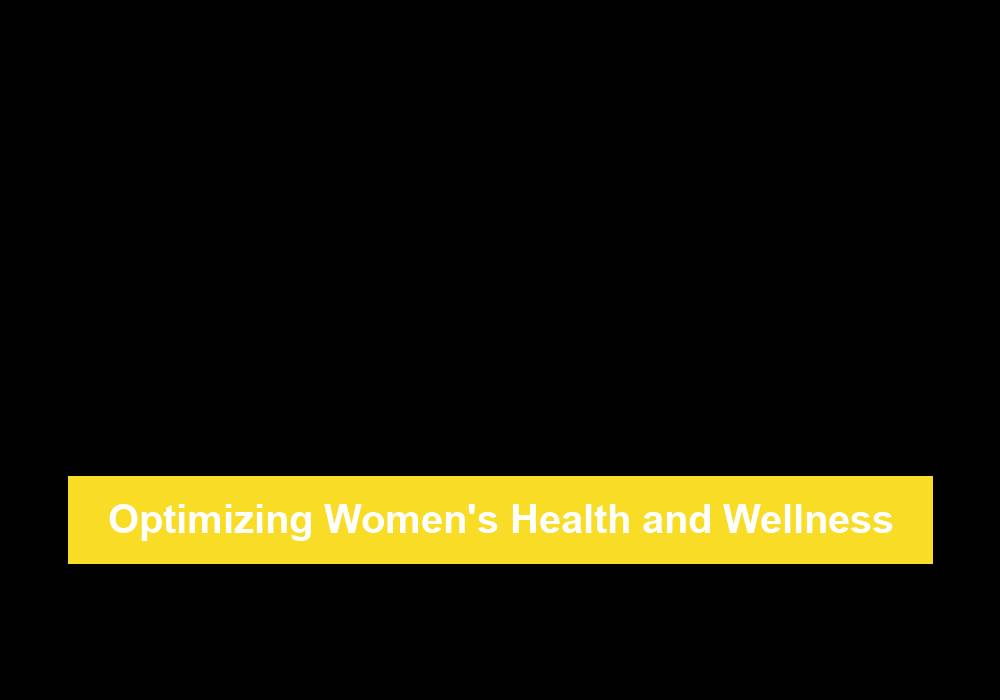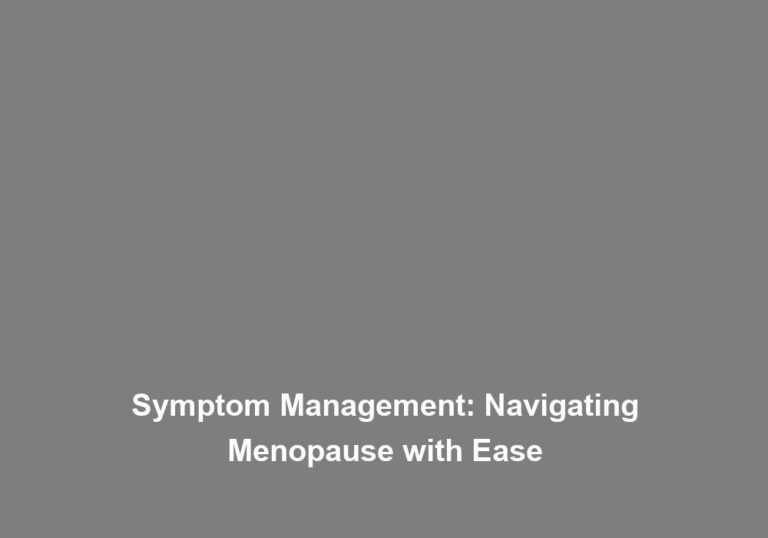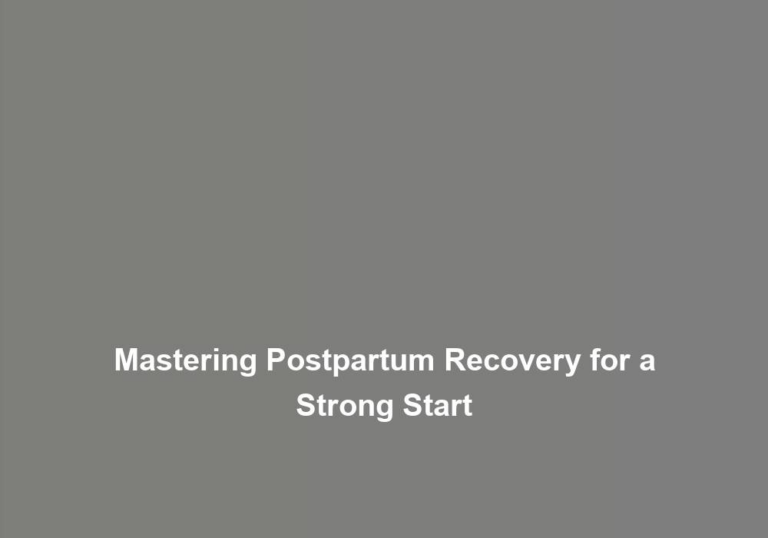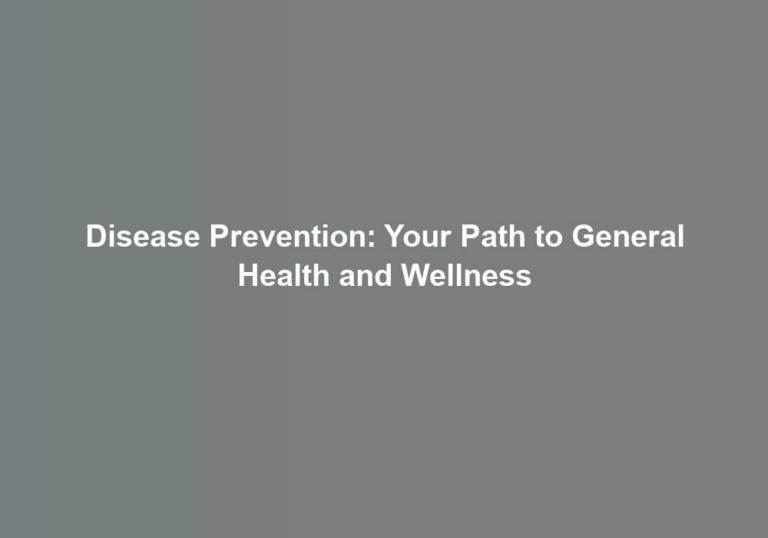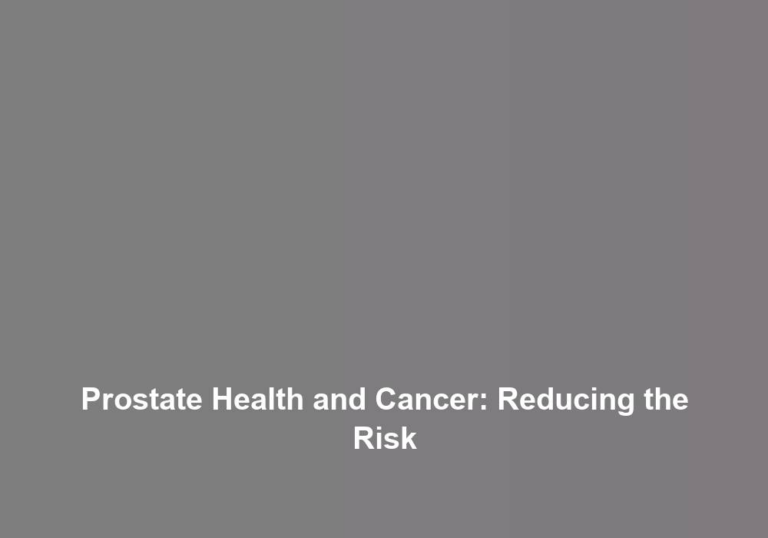Optimizing Women’s Health and Wellness
YouG??ve probably heard countless tips and tricks for achieving optimal health and wellness, but when it comes to women, the stakes can feel even higher. Ensuring that you are taking care of yourself in the best possible way is not just about feeling good, but also about setting the stage for a vibrant and fulfilling life. From understanding the importance of regular exercise to managing stress and navigating hormonal health, the journey to a healthier you is multifaceted and deeply personal. So, where do you begin?
Importance of Regular Exercise
Why is regular exercise so important for your overall health and wellness? Incorporating fitness routines into your daily life offers a wide array of exercise benefits that extend beyond just physical fitness. Engaging in regular physical activity not only helps you maintain a healthy weight and reduce the risk of chronic diseases, but it also has a positive impact on your mental and emotional well-being.
By consistently participating in fitness routines, you are not only strengthening your muscles and improving your cardiovascular health, but you are also boosting your mood and reducing feelings of anxiety and depression. Exercise has the power to uplift your spirits, increase your energy levels, and help you manage stress more effectively. Moreover, it can enhance your quality of sleep, allowing you to feel more rejuvenated and refreshed each day.
In addition to the immediate benefits, engaging in regular exercise can also contribute to your long-term health and wellness. It can lower your risk of developing conditions such as heart disease, high blood pressure, and type 2 diabetes. By prioritizing physical activity, you are investing in your future health and well-being.
Nutritional Guidelines for Women
Understanding and implementing proper nutritional guidelines is essential for maintaining optimal health and wellness as a woman. Hormonal balance plays a significant role in womenG??s health, and nutrition can greatly influence this balance. Consuming a well-balanced diet that includes a variety of nutrient-dense foods is crucial for supporting hormonal equilibrium. Ensuring that you obtain the necessary nutrient requirements, such as calcium, iron, and vitamin D, is vital for womenG??s overall health, particularly bone strength and reproductive health.
As a woman, your nutritional needs evolve throughout your life, from adolescence to menopause and beyond. ItG??s important to recognize these changing requirements and adjust your diet accordingly. For example, during pregnancy or lactation, your bodyG??s demand for certain nutrients increases, emphasizing the importance of proper nutrition during these critical periods.
Incorporating a colorful array of fruits and vegetables, lean proteins, whole grains, and healthy fats into your diet not only supports hormonal balance but also provides essential vitamins and minerals that contribute to overall well-being. Additionally, staying hydrated is essential for optimal health, as water plays a crucial role in numerous bodily functions.
Stress Management Techniques
Feeling overwhelmed is a common experience, and itG??s important to have effective tools to manage stress. Breathing exercises, mindfulness practices, and physical activity are valuable techniques for reducing stress and promoting overall well-being. By incorporating these methods into your daily routine, you can cultivate a greater sense of calm and resilience in the face of lifeG??s challenges.
Breathing Exercises
To manage stress and promote relaxation, incorporating simple breathing exercises into your daily routine can be highly beneficial. Relaxation techniques such as meditation practices, diaphragmatic breathing, and deep breathing exercises can help you find calmness in the midst of a busy day. When you feel overwhelmed, take a few moments to focus on your breath. Close your eyes, inhale deeply through your nose, feeling your abdomen rise, then exhale slowly through your mouth. Repeat this several times, letting go of tension with each breath. This practice engages your parasympathetic nervous system, triggering a relaxation response and reducing stress levels. By integrating these breathing exercises into your day, you can cultivate a sense of peace and balance, promoting overall well-being and a healthier lifestyle.
Mindfulness Practices
As you continue to explore ways to manage stress and promote relaxation, incorporating mindfulness practices into your daily routine can further enhance your overall well-being. Mindfulness techniques, such as practicing the relaxation response, can help reduce stress and improve your mental and physical health. Engaging in mindful eating, where you savor each bite and pay attention to hunger and fullness cues, can foster a healthier relationship with food and promote better digestion. Additionally, incorporating mindful movement, such as yoga or tai chi, can help you connect with your body and reduce muscle tension. By integrating these mindfulness practices into your life, you can cultivate a greater sense of peace and balance. Take a moment to consider how these practices can fit into your daily routine with the following table:
| Mindfulness Technique | Benefits | How to Incorporate |
|---|---|---|
| Relaxation Response | Reduces stress, promotes relaxation | Practice deep breathing and meditation daily |
| Mindful Eating | Improves relationship with food, aids digestion | Eat slowly, savor each bite, and pay attention to hunger and fullness cues |
| Mindful Movement | Connects with the body, reduces muscle tension | Engage in yoga, tai chi, or walking meditation regularly |
Physical Activity
Engaging in regular physical activity is a powerful way to manage stress and improve both your mental and physical well-being. Incorporating fitness routines into your daily life can have a profound impact on your overall health. Exercise benefits extend beyond just physical fitness; they also play a significant role in reducing stress and promoting mental wellness. When you engage in physical activity, your body releases endorphins, which are natural mood lifters. These endorphins can help alleviate feelings of anxiety and depression, leaving you with a sense of well-being. Additionally, establishing consistent fitness routines can provide a sense of structure and accomplishment, boosting your confidence and self-esteem. Whether itG??s through yoga, running, or dance, finding an exercise routine that brings you joy and fulfillment is essential for your holistic well-being.
Preventive Healthcare Measures
ItG??s crucial to prioritize your health by taking preventive measures to ensure your well-being. Regular check-ups, vaccinations, and health screenings are essential to detect any potential health issues early on. By staying proactive about your healthcare, you can maintain a strong foundation for a healthy and fulfilling life.
Regular Check-Ups
Regular check-ups are essential for maintaining your health and catching any potential issues early on. Health monitoring through regular medical examinations allows healthcare providers to track changes in your body over time, detect any signs of illness, and intervene before conditions progress. These check-ups help in identifying risk factors, managing chronic diseases, and promoting overall wellness. By staying proactive with your health, you can address concerns promptly and receive the necessary support and guidance. Regular check-ups also provide an opportunity to discuss any lifestyle changes, preventive measures, and health goals with your healthcare team. Your well-being is important, and these routine appointments empower you to take charge of your health, ensuring that you receive the personalized care you deserve.
Vaccinations for Women
Ensuring you receive the appropriate vaccinations is an essential aspect of preventive healthcare for women, safeguarding your well-being and contributing to overall health optimization. Vaccinations play a crucial role in protecting you from serious illnesses and complications, and they are especially important for women at different stages of life, including during pregnancy and as they age. ItG??s important to stay informed about vaccine safety and the latest immunization schedules to make sure you are up to date with all the necessary vaccinations. HereG??s a table to illustrate the recommended vaccinations for women at different ages:
| Age Group | Recommended Vaccines | Frequency |
|---|---|---|
| Adolescence | HPV, Tdap, Meningococcal | Every 5-10 years |
| Adulthood | Influenza, HPV, Tdap | Annually or as needed |
| Pregnancy | Flu, Tdap, COVID-19 | During each pregnancy |
Staying proactive about vaccinations is a proactive step towards a healthier you.
Health Screenings
When it comes to maintaining your health, staying proactive with regular health screenings is crucial for early detection and prevention of potential health issues. These screenings can help identify conditions such as breast cancer, cervical cancer, and osteoporosis in their early stages, making treatment more effective. By staying informed and participating in health education and awareness campaigns, you empower yourself to make informed decisions about your health. Preventive measures, such as mammograms, Pap smears, and bone density tests, play a vital role in keeping you healthy and catching any problems before they become more serious. Taking the time for these screenings not only shows self-care and respect for your well-being but also allows you to take control of your health and live your life to the fullest.
Hormonal Health and Balance
To achieve optimal hormonal health and balance, it is essential to prioritize a holistic approach to wellness that includes regular exercise, a balanced diet, and stress management techniques. Hormonal imbalances can significantly impact your overall well-being, affecting aspects such as mood, energy levels, and menstrual health. ItG??s important to recognize that hormonal changes are a natural part of being a woman, but when these imbalances become disruptive, they can lead to a range of symptoms that impact your quality of life.
Menstrual health is a key indicator of hormonal balance. Irregular periods, severe menstrual cramps, and heavy bleeding can all be signs of hormonal imbalances. If you experience any of these symptoms, itG??s important to seek guidance from a healthcare professional who can help identify the underlying causes and provide appropriate treatment options.
In addition to seeking medical advice, lifestyle factors play a crucial role in maintaining hormonal balance. Regular exercise, such as yoga or walking, can help regulate hormone levels and alleviate menstrual symptoms. A balanced diet rich in fruits, vegetables, and whole grains provides essential nutrients that support hormonal health. Furthermore, incorporating stress management techniques, such as meditation or deep breathing exercises, can help reduce cortisol levels and support overall hormonal balance.
Mental and Emotional Well-being
Fostering mental and emotional well-being is vital for achieving holistic health and optimizing your overall wellness. Your mental and emotional state significantly impacts your physical health. Here are some essential aspects to consider:
-
Self Care Strategies and Coping Mechanisms: ItG??s crucial to prioritize self-care to nurture your mental and emotional well-being. Engage in activities that bring you joy and relaxation, such as meditation, yoga, or spending time in nature. Establishing healthy boundaries and learning to say no when necessary is also an important aspect of self-care.
-
Relationship Dynamics and Support Systems: Cultivating healthy relationships and having a strong support system can greatly contribute to your mental and emotional well-being. Surround yourself with people who uplift and support you. Building and maintaining meaningful connections with friends, family, or support groups can provide a sense of belonging and comfort during challenging times.
-
Seeking Professional Help When Needed: ItG??s okay to ask for help. If youG??re struggling with your mental and emotional well-being, consider seeking professional support from therapists, counselors, or support groups. Speaking with a mental health professional can provide you with valuable tools and coping strategies to navigate through difficult emotions and experiences.
-
Mindfulness and Emotional Awareness: Practice mindfulness to stay present and aware of your emotions. Acknowledge and validate your feelings without judgment. Developing emotional intelligence can help you process and manage your emotions effectively, leading to a greater sense of well-being.
Conclusion
In conclusion, taking care of your health and wellness is a journey, not a destination. Remember, G??An ounce of prevention is worth a pound of cure.G?? By prioritizing regular exercise, balanced nutrition, stress management, preventive healthcare, hormonal balance, and mental well-being, you can optimize your overall health as a woman. You deserve to feel your best, and by making small, sustainable changes, you can achieve a healthier and happier life. Keep taking care of yourself, youG??re worth it.

